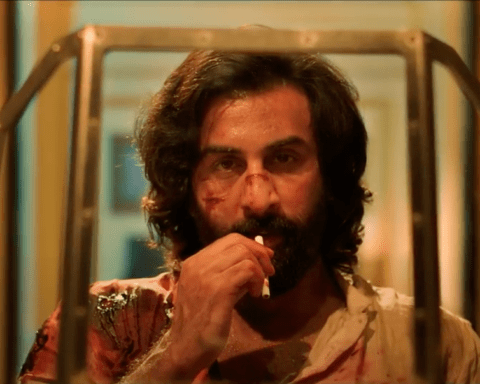North America is in a crisis.
The use of excessive force and police brutality that has gone on for decades has been placed in the spotlight over the past few years with several high profile cases of cops killing unarmed Black people on both sides of the Canadian-American border.
Not to mention, the shocking statistic behind the act of carding by the Toronto Police Services that shows if you’re Black you are more than four times as likely to be stopped by police (a practice Toronto Mayor John Tory announced this weekend will be abandoned).
The Black identity has come under attack.
The many Black men, and even children, who have all lost their lives because of their skin tone, serves to enlighten the masses to something that many in the Black community have known for years – that our lives are being taken for granted and it has to stop.
Communities have been torn apart by the struggle to simply exist as a Black person.
Through the adversity we have seen opposite ends of the spectrum come to blows over how to react. There have been peaceful protesters chanting for equality in the same city (see Baltimore, Maryland) where rioters have demanded justice, while the world watched with baited breath. Communities have been torn apart by the struggle to simply exist as a Black person.
While it would be easy to write the whole thing off as the workings of a disgruntled race, that would be missing the point. The Black Lives Matter movement was born of a desperation that hasn’t been seen from the Black community in a long time – a fear that we don’t have a right to live, to contribute, to thrive and to excel.
Black Excellence
Inside the second annual Black Canadian Awards held in Toronto this past weekend the central theme was Black excellence. Though often refuted, it is a concept that can never be denied.
While most award ceremonies are very individual affairs, where certain people take home awards that showcase their respective dominance within their fields, the Black Canadian Awards were much more about uplifting Black people as a whole.
Hosted by TV host and author, Randall Mitchell, and Integration TV’s Hodan Nalayeh, the awards ceremony was a chance to showcase talent and leadership in the Black-Canadian community that often goes unnoticed, hidden by the flashier headlines that put a negative spin on what it means to be Black.
The proceedings took place at the Queen Elizabeth Theatre, starting with red carpet entrances at 5 p.m. Nominees, honourees and role models were all acknowledged and given a token of appreciation before the ceremony began. Photos were taken, good food served and everyone, from celebrated guests to media, mixed and mingled before the celebrations kicked off with artist Lorraine Scott singing a beautiful rendition of “Oh Canada”.
 From beginning to end, the Black Canadian Awards gave off a distinctive feel. The collective recognition of everyone from politicians to poets and musicians coming together screamed appreciation and collaboration.
From beginning to end, the Black Canadian Awards gave off a distinctive feel. The collective recognition of everyone from politicians to poets and musicians coming together screamed appreciation and collaboration.
While most award ceremonies are very individual affairs, where certain people take home awards that showcase their respective dominance within their fields, the Black Canadian Awards were much more about uplifting Black people as a whole.
There were over 20 different categories, spread across a variety of disciplines. Awards like the Best Writer/Literary Work and Best Gospel Group were given to established recipients like author Lawrence Hill (The Book of Negroes) and the Powerhouse Fellowship Soul Choir respectively, while younger up-and-comers like Elijha Hamill and PepperBrooks took home awards of their own for Best Actor and Best Blogger respectively.
The relevance of the lyrics, “There been times when I thought I couldn’t last for long, but now I think I’m able to carry on,” shouldn’t be understated, especially in relation to the current global climate of blackness in North America.
In a particularly memorable acceptance speech, Best Actress award recipient, Amanda Brugel, brought all of the other nominees in her category, including last year’s winner Oluniké Adeliyi (pictured above on the left), on stage to acknowledge each of them.
During her speech Brugel mentioned that it’s important for Black people to, “constantly be saying each other’s names,” and to often acknowledge each other and the contributions we each make to society.
The night was accented by live vocal performances from talented artists and groups like Sunset Service and Lisa Banton, each performing a multitude of songs across different genres. Hip-hop artist Xolisa glided her way to the stage while moving the audience with smooth spoken word and meticulously crafted verses, while the DOAHL Academy rocked the crowd with an in-your-face type dance performance.
Needless to say the Black Canadian Awards had no shortage of exciting performances for attendees to take in. Even the hosts held their own short dance segment, getting the crowd on their feet and showing that they had rhythm too.
In a ‘save the best for last’ type moment, the performance that encompassed the feeling the event was trying to convey came from Jay Harmony singing her rendition of “A Change is Gonna Come” by Sam Cooke. The relevance of the lyrics, “There been times when I thought I couldn’t last for long, but now I think I’m able to carry on,” shouldn’t be understated, especially in relation to the current global climate of blackness in North America.
The song, and the awards show overall, is a testament to the resiliency of the Black community. Through trouble, strife, fear and persecution, Black people have fought through and excelled in a way that many didn’t believe possible and that’s precisely what the Black Canadian Awards is all about – Black excellence in all things. It’s about making a way when there is no way and supporting each other through the bad and – eventually – the good.




